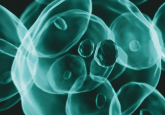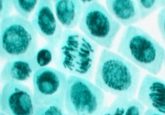Novel analysis highlights eight potential genetic drivers of breast cancer

Following a novel comprehensive and integrated analysis of multiple data types, investigators at UNC Lineberger Comprehensive Cancer Center (NC, USA) have identified key genetic drivers of breast cancer, highlighting eight genes that may represents targets for therapy. The study was published recently online in Nature Genetics.
The data analysis, led by Michael Gatza of Lineberger Comprehensive Cancer Center, examined gene expression data, somatic mutations, DNA copy number and a functional genomics data set with an aim of uncovering more information about the drivers of cancer. The results of the investigation pointed to eight genes that were amplified at the DNA level, all of which were necessary for cell proliferation in luminal breast cancer.
“Using this new computational approach, we were able to take advantage of the rich data resources that exist and identify a number of new potential drug targets for a specific subset of breast cancer patients. This is an important step down the road towards more personalized medicine,” explained senior author Chuck Perou (Lineberger Comprehensive Cancer Center).
One of the eight genes highlighted as a driver in luminal breast cancer, termed CPT1A, had already been established as a target for drug development in lymphoma. Agents designed to target CPT1A in the disease have demonstrated some efficacy during in vitro and animal studies. Considering their results, the authors suggest that such agents could be tested for efficacy in breast cancer also.
Although this study was focused on breast cancer, the method used to identify these potential drivers of malignancy could be applied to other tumor types. “While we were able to pinpoint drivers for breast cancer, this approach can and will be applied to other tumor types in the future,” commented Gatza.
Source: UNC Health Care press release





